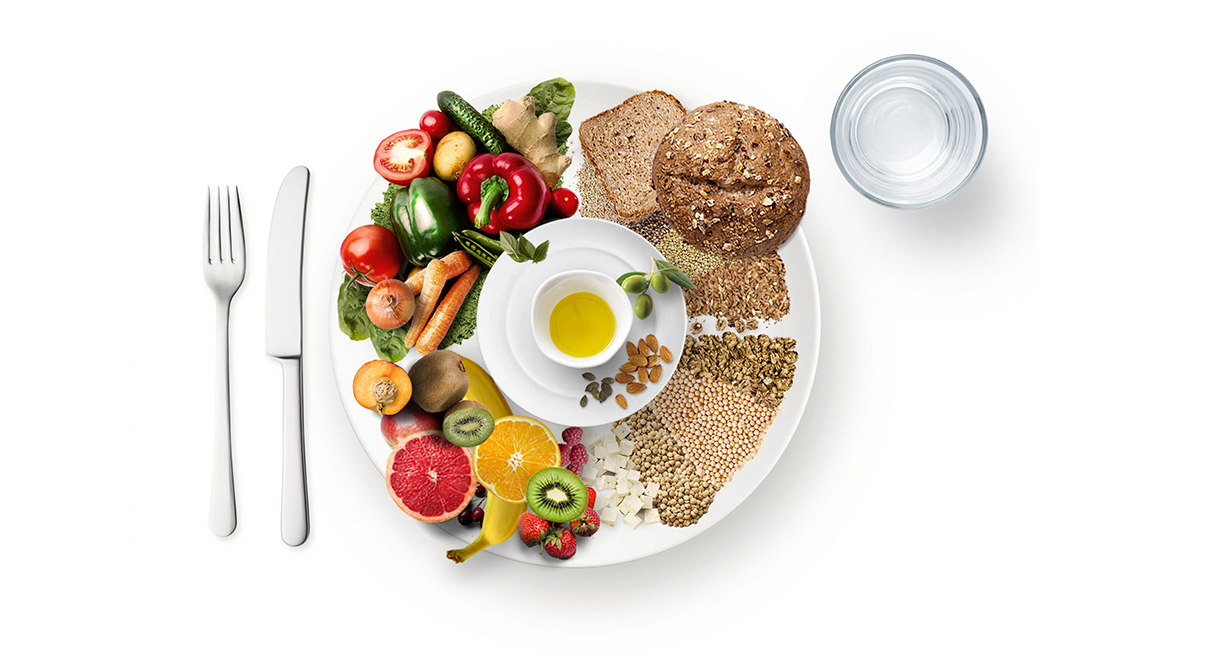Healthy eating is a key part of aging well. It is a way for you to stay healthy and strong, which is important to maintain your independence and quality of life. Healthy eating can help: promote and protect health and well-being provide energy and essential nutrients to maintain health
Healthy eating is a key part of aging well. It is a way for you to stay healthy and strong, which is important to maintain your independence and quality of life.
Healthy eating can help:
- Promote and protect health and well-being
- Provide energy and essential nutrients to maintain health
- Prevent or lower the risk of chronic diseases like: Heart disease and Type 2 diabetes
- Prevent muscle and bone loss to reduce your risk of falling or breaking your bones
As you age, you face different changes that may make:
- Healthy eating seem more challenging
- You not feel as hungry or interested in food
These changes may include:
1. Changes to your body that:
- Impact your appetite
- Decrease your sense of taste or smell
- Impact your digestion, ability to chew or swallow
- Make it more difficult for you to get to the grocery store
- Make it more difficult for you to spend a lot of time preparing food
- Impact your ability to shop for or cook your own food or do tasks like open jars
2. Changes in lifestyle that mean you may:
- Have less income
- Eat alone more often
- Be caring for a loved one
- Have someone cooking for you
- Live in a new home with a different kitchen
- Be cooking for just 1 or 2 people instead of a large family
3. Changes to your health that require medication that have side effects on taste and appetite
Healthy eating habits
Cooking and eating healthy food does not have to be difficult, time consuming or expensive. Consider these ideas to help you maintain healthy eating habits as you age.
Enjoy a variety of healthy foods
As you age, it is important to eat a variety of healthy foods to make sure you get enough of the different nutrients you need.
Choose a variety of vegetables and fruits, whole grain foods and protein foods that you enjoy.
Every day, choose a variety of:
Vegetables and fruit, including:
- dark green vegetables such as kale and bok choy each day
- orange vegetables such as carrots and sweet potato most days
Whole grains foods:
- oats
- wild rice
- whole wheat pasta
Protein foods such as:
- eggs
- nuts and seeds
- fish and shellfish
- beans, peas, and lentils
- lean red meats, including wild game
- lower fat dairy products such as milk and yogurt
- fortified soy beverages, tofu, soybeans and other soy products
If you are 51 years of age or older, take a supplement with 400 IU (10 µg) of vitamin D every day.
If your sense of taste or smell has changed, try different spices and herbs to add more flavour, instead of salt. You can also switch up the texture and temperature of foods to make them more interesting.
If some foods have become more difficult to eat, try choosing and preparing foods differently. For example, for a softer texture, try cooking vegetables instead of eating them raw.
Drink water
As you age, your sense of thirst may decline, but you still need to drink regularly whether you feel thirsty or not. To stay hydrated, drink throughout the day and with each meal and snack. Satisfy your thirst with water instead of sugary drinks.
Other foods and drinks that can help keep you hydrated include:
- lower fat white milk
- low sodium soups
- vegetables and fruits
- unsweetened fortified plant-based beverages
Let’s age well and gracefully
Related Post
Physical Exercise Improves Quality of Life
The use of exercise for improving health has been
PSWs are the unsung heroes behind the curtain
Daniel’s mother is now in her late 70s, while










